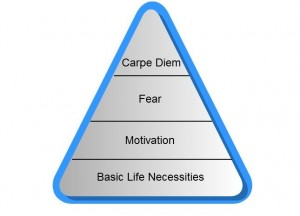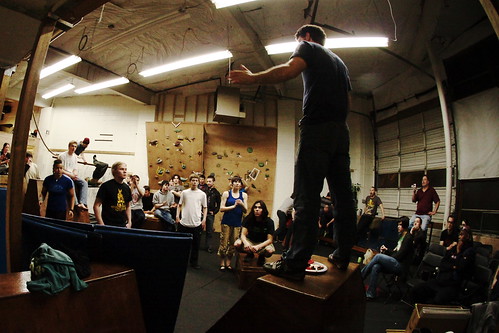In general there are two types of successful people I meet. The first type know at an early age what they want to do and do everything they can to get there. The second type have a goal in mind and work hard to get there, but change goals half-way to finish in an entirely different place. Where they end up isn’t anywhere near where they wanted to go, but in the end it is still a successful accomplishment.
Both types of people would be considered successful. The only real difference between the two is that the second type abandoned their original goals even if they had been held for a long period of time. So what does this mean for success in your life? If you might end up in an entirely different place and still be successful, does the path you take really matter?
Continue reading



 I write and think a lot about carpe diem. In this time, I’ve noticed most people get stuck at the same points and go through similar setbacks when they’re trying to seize the day. It occurred to me that carpe diem is just a series of steps people pass through.
I write and think a lot about carpe diem. In this time, I’ve noticed most people get stuck at the same points and go through similar setbacks when they’re trying to seize the day. It occurred to me that carpe diem is just a series of steps people pass through.

